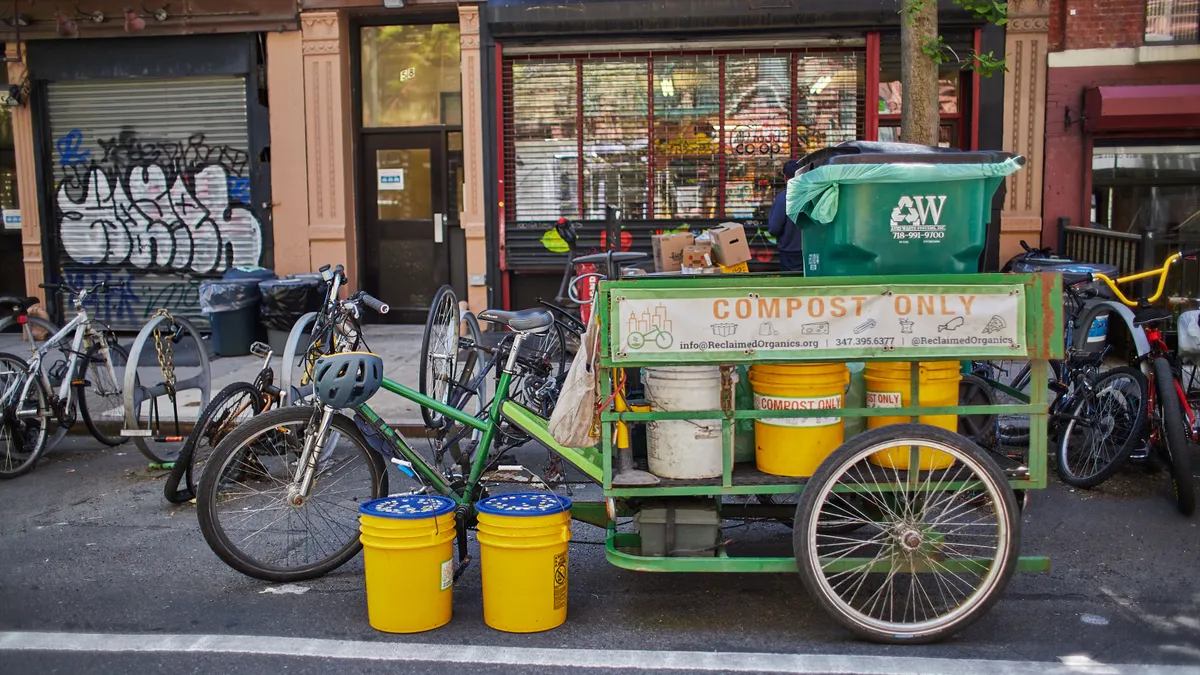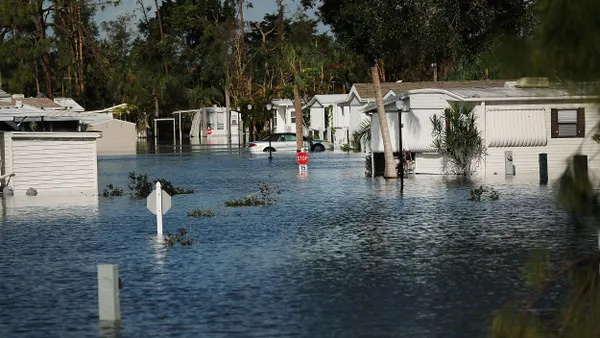A bill that directs the New York City Department of Sanitation to roll out a mandatory organics collection program for residents became law on Saturday without a signature from Mayor Eric Adams.
The bill was passed by a veto-proof majority of the New York City Council on June 8 in a package dubbed the Zero Waste Act. Sponsored by Council Speaker Adrienne Adams and Sanitation Committee Chair Sandy Nurse, among others, the package included a range of measures to overhaul the city's waste collection. Local bills can become law without action from the mayor after 30 days.
Intro. 244-A, introduced by Council Member Shahana Hanif, makes residential organics collection participation mandatory for all New York City residents come October 2024. Hanif hailed the measure becoming law in a Monday social media post, noting it will begin rolling out in Queens and Brooklyn in three months. This builds on a voluntary pilot program that has been available in select areas and was slated to roll out city-wide on the same timeline.
Speaker Adams said the Zero Waste Act was a “critical step forward” in creating a more sustainable future for the city in a statement following the bill’s passage on June 8. “Through increased access to composting and recycling sites, all New Yorkers will now be able to participate more equitably in our collective goal of diverting all recyclables and organic waste from landfills and incinerators by 2023,” she said.
Besides the mandatory organics collection program, the Zero Waste Act includes four other provisions. One sets a goal to divert 100% of recyclable waste from landfills or incinerators by 2030, and another requires DSNY to submit annual reports on progress towards that goal beginning in 2024. The package also requires DSNY to set up and operate at least two drop-off recycling centers in each community district, as well as establish at least 30 organic waste drop-off sites citywide with three per borough at a minimum.
Eric Goldstein, New York City environment director with the Natural Resources Defense Council, called the package’s enactment a “a long-awaited waste reform milestone in the nation’s largest city.”
“Universal curbside organics collections, if successfully implemented, will cut climate-destroying methane emissions, produce useful finished compost and over time save taxpayer dollars when compared to sending food scraps and yard waste to distant landfills and incinerators,” Goldstein said in an emailed statement.
As written, the bill would have required DSNY to develop an implementation plan to submit to the council by July 1, a deadline that came and went prior to the bill becoming law. On Monday, the agency circulated a proposed rule to update regulations in light of the new law. New rules would make yard waste separation mandatory year-round and allow it to be set out in clear plastic bags. The update also prohibits yard waste from being commingled with organic waste in paper bags.
DSNY is accepting written public comments on the rule until Aug. 10. It also scheduled a public hearing to receive feedback on the rule on the same day.
Editor's note: This story has been updated with additional details on the bill package and reactions to it becoming law.













